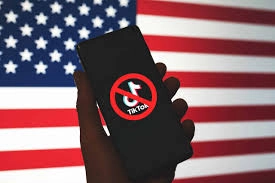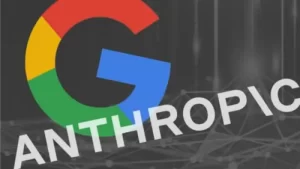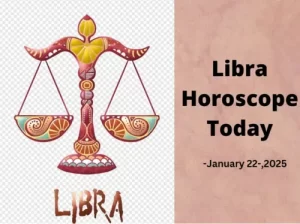From viral dance crazes to global political battles, TikTok 💃 has become a cultural phenomenon. But with bans and restrictions popping up around the world 🗺️, the future of this short-form video giant is hanging in the balance. 🤔 Is it a harmless entertainment platform or a national security threat?
🛡️ Dive into the controversy surrounding TikTok, explore the reasons behind the bans, and discover what it all means for users, creators, and the future of social media. 👇

ADVERTISEMENT

📱 TikTok on the Brink: Navigating the Global Controversy and its Uncertain Future 🤯
Table of Contents
TikTok: A Global Phenomenon with Chinese Roots
TikTok, owned by the Chinese tech giant ByteDance, has exploded in popularity in recent years. Its user-friendly interface, combined with a powerful algorithm that quickly learns user preferences, has made it a global sensation. 🌎 From viral dance challenges to educational content and everything in between, TikTok offers a diverse range of content that has captivated users, particularly younger generations.
Why the Controversy? National Security Concerns Take Center Stage
Despite its popularity, TikTok has drawn the ire of governments worldwide, primarily due to concerns about national security. 😟 These concerns largely stem from the app’s ownership by a Chinese company and the potential for the Chinese government to access user data or influence the platform’s content.
- Data Privacy: 🗃️ Critics argue that TikTok collects vast amounts of user data, including location information, browsing history, and even biometric data. There are fears that this data could be accessed by the Chinese government, potentially compromising user privacy and national security.
- Cybersecurity Risks: 👾 Some experts warn that TikTok could pose cybersecurity risks, potentially serving as a vector for malware or other malicious activities.
- Censorship and Propaganda: 🚫 Concerns have been raised that the Chinese government could pressure ByteDance to censor content critical of China or to promote pro-China narratives on the platform.
- Competition: U.S. based tech companies see TikTok as a major competitor.
TikTok Banned: Exploring the Reasons, Impact, and Global Controversy
TikTok, one of the world’s most popular video-sharing platforms, has faced bans and restrictions in various countries due to concerns over data privacy, national security, and content moderation. This article explores the reasons behind these bans, the regions affected, and the broader implications for users, creators, and the tech industry.
What is TikTok and Why is it Controversial?
TikTok, owned by the Chinese company ByteDance, allows users to create and share short videos. Its engaging algorithm and massive user base have made it a cultural phenomenon, but it has also drawn scrutiny due to:
- Data Privacy Concerns: 🚨 Allegations of user data being accessed by the Chinese government.
- National Security Risks: 💣 Fears that TikTok could be used for espionage.
- Content Moderation Issues: 🔞 Criticism over the spread of misinformation, harmful content, and lack of content regulation.
- Political Propaganda: 📢 Accusations of the platform being used to promote certain political agendas.
Countries That Have Banned TikTok
Several nations have imposed restrictions or outright bans on TikTok, including:
1. India 🇮🇳
- Reason: Concerns over national security and data privacy.
- Impact: The ban in 2020 was part of a broader crackdown on Chinese apps amidst geopolitical tensions.
- Replacements: Indian users transitioned to local apps like Chingari and Mitron.
2. United States 🇺🇸
- Reason: Alleged links between ByteDance and the Chinese government.
- Status: While TikTok has not been banned, several states have prohibited its use on government devices. There are also bills in US Congress that seek to ban it nationwide.
3. European Union 🇪🇺
- Status: Ongoing investigations into data protection and compliance with GDPR.
- Concerns: Transparency in handling user data and content moderation.
4. Other Countries 🌏
- Pakistan: 🇵🇰 Temporary bans due to immoral and inappropriate content.
- Afghanistan: 🇦🇫 Concerns over content that violates Islamic principles.
Impact of TikTok Bans
1. On Users and Creators 😄
- Loss of Income: 💸 Influencers and content creators lose revenue streams from brand partnerships.
- Shift to Alternatives: ➡️ Creators migrate to platforms like Instagram Reels, YouTube Shorts, and Snapchat Spotlight.
- Reduced Access: 🚫 Users lose access to a popular entertainment source.
2. On ByteDance 🇨🇳
- Revenue Loss: 📉 Affected by decreased user engagement and ad revenue.
- Market Diversification: 🌍 ByteDance focuses on expanding TikTok-like platforms in other markets.
3. On the Tech Industry 🧑💻
- Rise of Alternatives: 🚀 Platforms like Instagram Reels and YouTube Shorts benefit from TikTok’s absence.
- Innovation: 💡 Competition drives new features in video-sharing apps.
How TikTok is Responding
To address concerns, TikTok has implemented various measures:
- Data Localization: 🗄️ Storing user data in local servers.
- Transparency Centers: Allowing third-party audits of its data practices.
- Content Moderation: 💖 Strengthening policies to combat misinformation and harmful content.
Global Reactions to TikTok Bans
- Public Opinion: 🙂🙁 Mixed reactions, with some supporting bans for security reasons and others opposing censorship.
- Government Stances: 👨⚖️ Divergent views on whether TikTok poses genuine risks.
Frequently Asked Questions (FAQs) About TikTok Bans
1. Why is TikTok being banned?
* TikTok is often banned due to concerns about data privacy, national security, and content moderation.
2. Is TikTok banned worldwide?
* No, TikTok is not banned worldwide but has faced restrictions in countries like India, Pakistan, and the U.S. (on government devices).
3. What alternatives exist to TikTok?
* Popular alternatives include Instagram Reels, YouTube Shorts, Snapchat Spotlight, and local apps like Chingari in India.
4. Can TikTok regain access to banned markets?
* TikTok is actively engaging with governments to address concerns and comply with regulations.
5. How does TikTok ensure data privacy?
* TikTok has introduced data localization, transparency centers, and stricter content moderation policies.
Responsible Use of Social Media
As social media platforms grow in influence, users must remain cautious about sharing personal information and engaging with content responsibly.
India’s Ban and the US’s Scrutiny
India took the most drastic action in 2020, banning TikTok along with dozens of other Chinese apps, citing national security concerns following border clashes between the two countries.
In the United States, TikTok has faced intense scrutiny. The previous administration attempted to force a sale of TikTok’s US operations to American companies, citing national security risks. While these efforts stalled, the Biden administration has continued to review the app’s operations and its potential risks. Recently, there has been a renewed push to ban it, with Congress introducing bills seeking to achieve this.
TikTok’s Defense: Reassurances and Restructuring 💻
ByteDance has consistently denied that it shares user data with the Chinese government or that it censors content at the government’s behest. The company has taken steps to address concerns, including:
- Data Storage: TikTok claims that US user data is stored in the United States, with backup storage in Singapore. 💾
- Transparency Centers: The company has opened “Transparency and Accountability Centers” to allow experts to examine its source code and data practices.
- Partnerships: TikTok has explored partnerships with US companies, like Oracle and Walmart, to manage its US operations and data.
The Debate Rages On: Balancing Security with Freedom 🗽
The debate over TikTok’s future is complex, involving national security, data privacy, freedom of speech, and economic competition.
- Proponents of a ban argue that the risks to national security and user privacy are too great to ignore, regardless of the company’s reassurances. They point to China’s national security laws, which could compel ByteDance to cooperate with government requests for data.
- Opponents of a ban argue that it would set a dangerous precedent for internet censorship and that there is no concrete evidence of wrongdoing by TikTok. They emphasize the importance of protecting freedom of expression and the economic benefits of the platform.
What’s Next for TikTok? ⏭️
The future of TikTok remains uncertain. The app’s fate will likely depend on the outcome of ongoing legal and regulatory battles, as well as the evolving geopolitical landscape. Possible scenarios include:
- A Complete Ban: 🚫 In some countries, TikTok could be completely banned, as it is in India.
- Forced Sale or Partnership: 🤝 TikTok could be forced to sell its operations in certain countries to local companies or form partnerships to address security concerns.
- Increased Regulation: 👨⚖️ Governments could impose stricter regulations on TikTok’s data collection, algorithmic transparency, and content moderation practices.
- Status Quo: 👍 TikTok could continue to operate as it currently does, albeit under increased scrutiny.
Conclusion: A Defining Issue of Our Digital Age
The TikTok saga is a defining issue of our digital age, highlighting the challenges of balancing national security with the free flow of information in a globalized world. As governments and tech companies grapple with these issues, the future of TikTok, and potentially the broader landscape of social media, hangs in the balance.
TechWirings Disclaimer 👨💻
TechWirings informs that this article is intended for informational purposes only and aims to provide a comprehensive overview of the ongoing debate surrounding TikTok and the possibility of bans. The information presented is based on publicly available data, news reports, and expert opinions. TechWirings is not affiliated with TikTok, ByteDance, or any government entities mentioned. This article should not be considered legal or investment advice.
References 📚
- The New York Times. “TikTok Ban: What You Need to Know.”
- The Wall Street Journal. “TikTok’s Future in the U.S.”
- BBC News. “TikTok and National Security.”
- Reuters. “India Bans TikTok.”
- The Verge. “TikTok Controversy Explained.”
- Brookings Institution. “The TikTok debate and its implications.” https://www.brookings.edu/
- Council on Foreign Relations. “China’s Technology and National Security.” https://www.cfr.org/
- Forbes. “TikTok and Its Competitors.”
- ChatGPT
- Gemini










